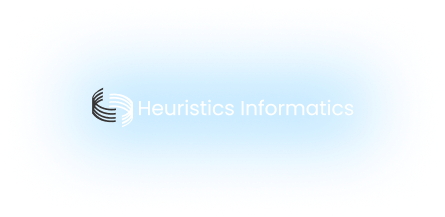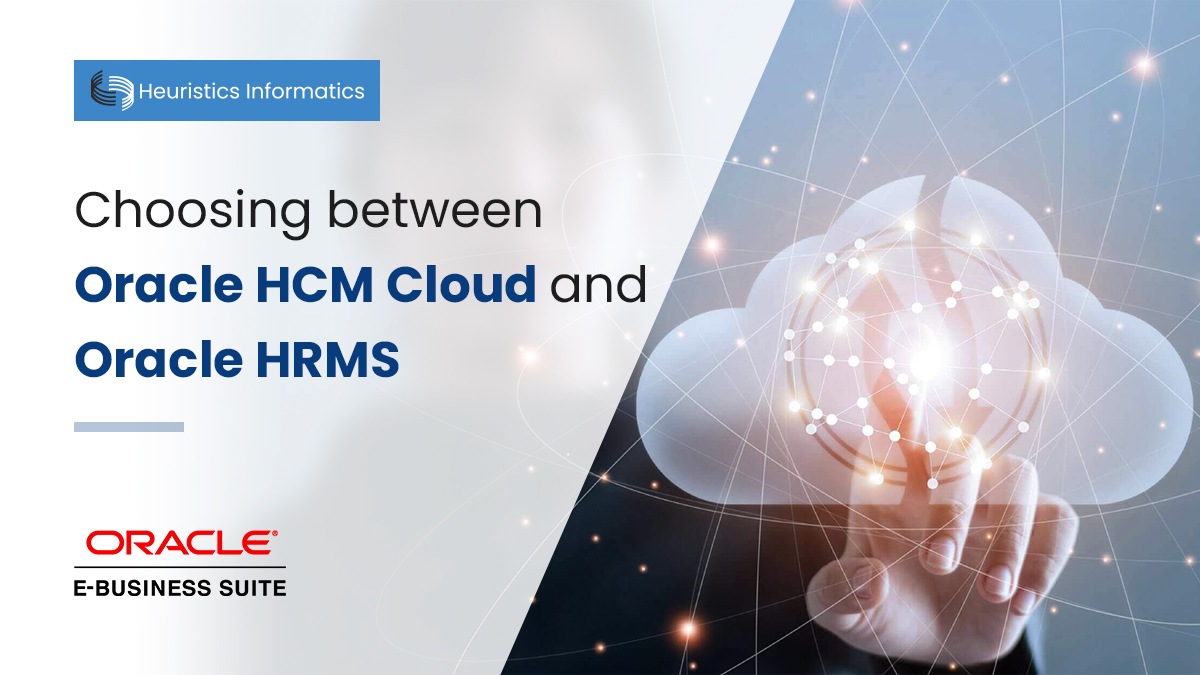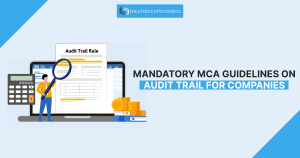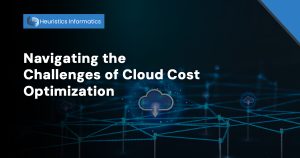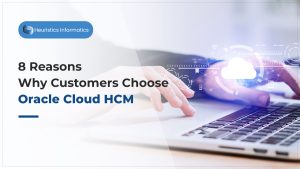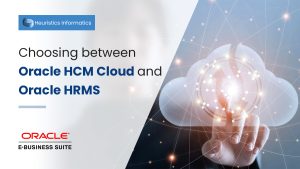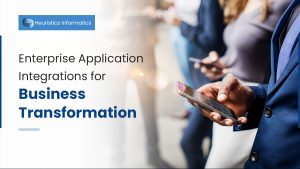Understanding Human Capital Management Systems
HCM solutions provide you with comprehensive tools to streamline HR processes, improve workforce efficiency, enhance employee engagement, and align HR strategies with overall business objectives. By leveraging these systems, one can optimize their human capital management and make informed decisions to drive organizational success. There are several human capital management systems available in the market, each with their unique features and functionalities. Here is what these systems offer:
- Workforce Planning
- Recruitment and Onboarding
- Employee Data Management
- Performance Management
- Learning and Development
- Compensation and Benefits Management
- Succession Planning and Career Development
- Compliance and Reporting
Now let us look at two of the most popular human capital management systems, i.e., Oracle HCM Cloud and Oracle HRMS (Oracle EBS).
Oracle HCM Cloud
Oracle HCM Cloud is a comprehensive and cloud-based Human Capital Management (HCM) solution provided by Oracle Corporation. It is designed to streamline and automate various HR processes, enabling organizations to effectively manage their workforce throughout the entire employee lifecycle. It provides a unified platform where organizations can manage and access critical HR data, perform HR tasks, and gain valuable insights to support strategic decision-making.
As a cloud-based solution, Oracle HCM Cloud offers the advantages of accessibility, scalability, and regular updates. It eliminates the need for organizations to manage hardware infrastructure or perform manual software updates, as these tasks are handled by Oracle.
Oracle HRMS (Oracle EBS)
Choice between Oracle HCM Cloud and Oracle HRMS (Oracle EBS)
The choice between Oracle HCM Cloud and Oracle EBS depends on various factors such as organizational size, budget, accessibility needs, and the required level of functionality. Oracle HCM Cloud offers the advantages of cloud-based accessibility, regular updates, scalability, and predictable cost structure. On the other hand, Oracle EBS provides more control over the system’s deployment, customization, and may be a better fit for organizations with specific regulatory or data security requirements. Ultimately, it is essential for organizations to evaluate their unique needs and consider these differences to make an informed decision on which solution aligns best with their HR management objectives.
- Deployment Model: Oracle HCM Cloud is a cloud-based software-as-a-service (SaaS) solution, which means it is hosted and maintained by Oracle in the cloud. On the other hand, Oracle HRMS is an on-premises solution, requiring organizations to install and manage the software on their own servers.
- Accessibility and Scalability: Oracle HCM Cloud offers greater accessibility and scalability compared to Oracle HRMS. As a cloud-based solution, HCM Cloud can be accessed anytime, anywhere, as long as there is an internet connection. In contrast, Oracle HRMS is limited to on-premises access, which can be a constraint for organizations with a need for remote or mobile HR management.
- Updates and Maintenance: With Oracle HCM Cloud, updates and maintenance are handled by Oracle. As a SaaS solution, Oracle regularly releases updates and enhancements to the HCM Cloud platform, ensuring that users have access to the latest features and security patches. On the other hand, Oracle HRMS requires organizations to manage updates and maintenance themselves.
- Cost Structure: Oracle HCM Cloud typically follows a subscription-based pricing model, where organizations pay a recurring fee based on the number of users and the features they require. In contrast, Oracle HRMS often involves a significant upfront investment for software licenses, implementation, customization, and ongoing maintenance costs.
- Functionality and Features: HCM Cloud is often considered more robust in terms of features and functionality. It includes modules for core HR, talent management, workforce management, payroll, benefits administration, and more. Additionally, HCM Cloud integrates with other Oracle Cloud products, such as Oracle Fusion Financials, providing a seamless end-to-end enterprise solution.

Both Oracle HCM Cloud and Oracle HRMS (Oracle E-Business Suite) offer robust solutions for managing human resources processes. Organizations should carefully evaluate their specific requirements, IT infrastructure, budget, and future scalability needs before choosing between the two options. The shift towards cloud-based solutions and the broader functional coverage of Oracle HCM Cloud often make it a compelling choice for organizations looking to modernize their HR systems and leverage the benefits of cloud technology.
Let HIPL help you with your Oracle systems. We specialize in enterprise level Oracle suite of products, ranging from complex implementation of Oracle E-Business Suite to developing solutions using Fusion Middleware, implementing SOA suite, BI, Hyperion, Engineered Systems, designing high availability Oracle DB architecture, applications, providing Database Support 24x7x365, and much more. Connect with our team for your solution.
